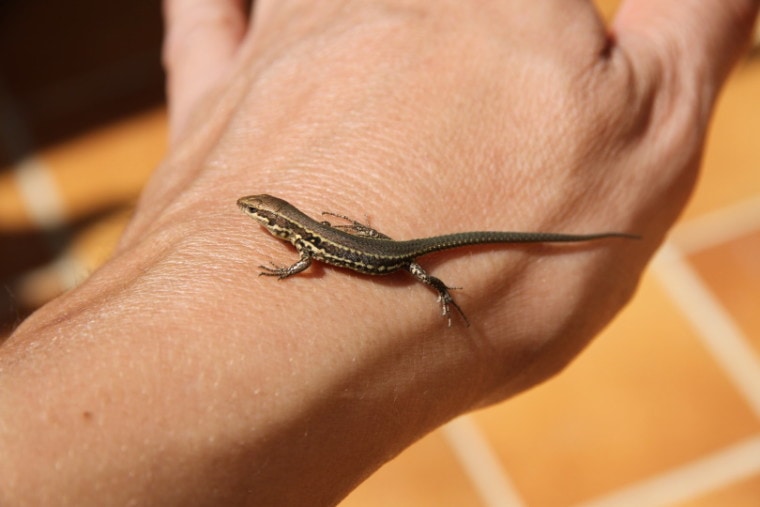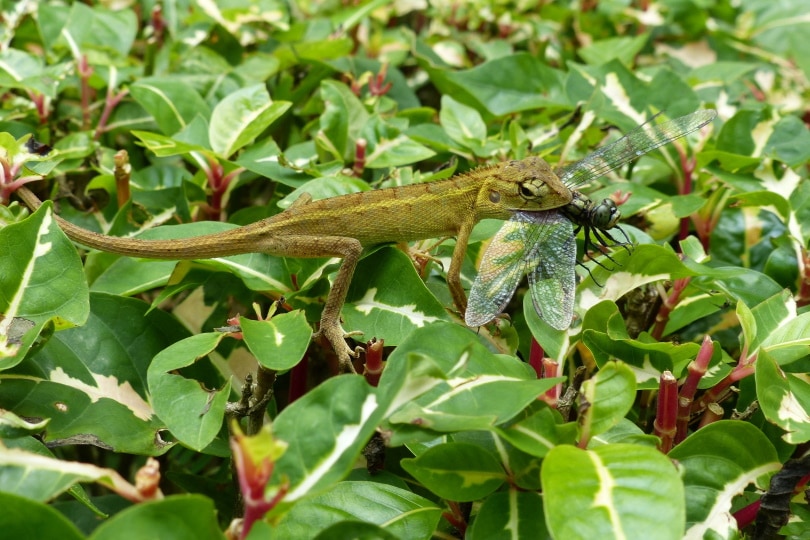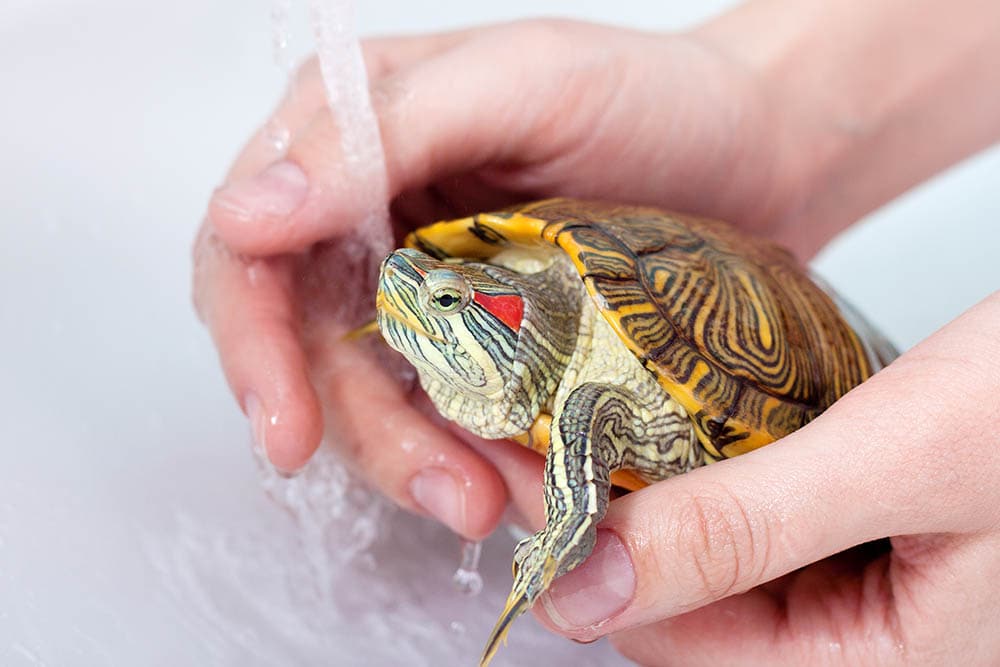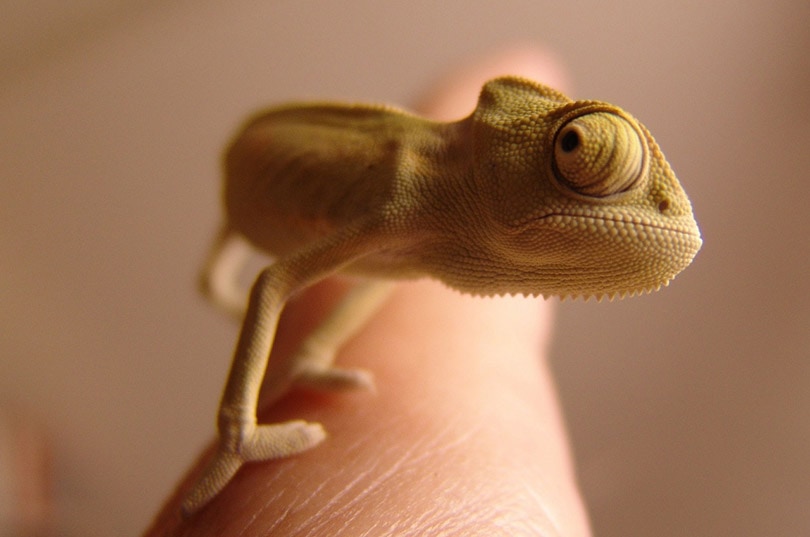
From the moment they hatch, baby lizards are independent. They do not require any care from their mother and will eat the same foods as adults. The diet of a baby lizard depends on whether the species is an herbivore, omnivore, or carnivore.
Though baby lizards do have the same nutritional needs as the adult, they will not be as effective at hunting and foraging as an adult lizard. These skills will be developed as the lizard matures and grows.
A pet baby lizard’s diet will depend on the species and you should consult with your veterinarian on the best diet to ensure your lizard’s overall health and well-being.
 What Do Wild Baby Lizards Eat?
What Do Wild Baby Lizards Eat?

Whether the baby lizard is an herbivore, carnivore, or omnivore, they have the digestive capacity of an adult. A wild baby lizard will learn to hunt and forage as soon as it is hatched. Depending on the region, they will get their proper nutrition by eating various plant life and/or prey.
Their diet is greatly dependent on their size. They may require smaller prey like insects and worms or larger prey such as mice, frogs, and other lizards if they are carnivorous or omnivorous. The omnivores will include local plant life in their diet.
They will practice hunting skills on smaller prey such as insects while they grow and mature. As they age and become more skilled hunters, they will move to larger prey. Wild baby lizards will likely never stop eating insects entirely.
Common prey items include crickets, ants, flies, grasshoppers, worms, spiders, and small rodents. The overall diet of a wild baby lizard is highly dependent on available prey and hunting conditions.
A wild baby herbivorous lizard’s diet is limited to the local plants, fruits, and vegetables in their native region. As with any lizard, what they eat depends on where the lizard lives and its size.
- Related Read: What Do Chameleons Eat in the Wild & as Pets?
What Do Pet Baby Lizards Eat?

If you are caring for a pet baby lizard, you can offer the same food that is recommended for adults. As with any pet, you will want to consult your veterinarian for proper diet and nutrition recommendations.
Baby lizards can handle live prey, it will provide mental stimulation and great nutritional value. Pet stores will typically carry a variety of foods such as live crickets, flies, roaches, worms, and rodents. You do have the option to purchase dried mealworms and crickets. If you have a larger species, they do have frozen rodents available as well.
It’s highly recommended to monitor the live feeding sessions and remove any uneaten prey after about 20 minutes. Live prey that remains in the enclosure can cause harm to your baby lizard.
Herbivores will eat various fruits and greens. It is important to offer a wide variety of foods to your herbivorous baby lizard to avoid nutritional deficiencies.
 Final Thoughts
Final Thoughts
You will want to research your particular species of lizard so that you can offer their native fruits and vegetables. You can purchase these fresh food items from the local grocery store. Pet stores will have dry food and food toppers available as well.
Keep in mind that omnivorous baby lizards will eat a variety of fruits, greens, and meat. You will need to adjust their diet accordingly.
Related Reads:
- How to Take Care of a Lizard (Care Sheet & Guide)
- 13 Lizards Found in North Carolina (With Pictures)
Featured Image Credit: Laurent Duval, Pixabay
 What Do Wild Baby Lizards Eat?
What Do Wild Baby Lizards Eat?





